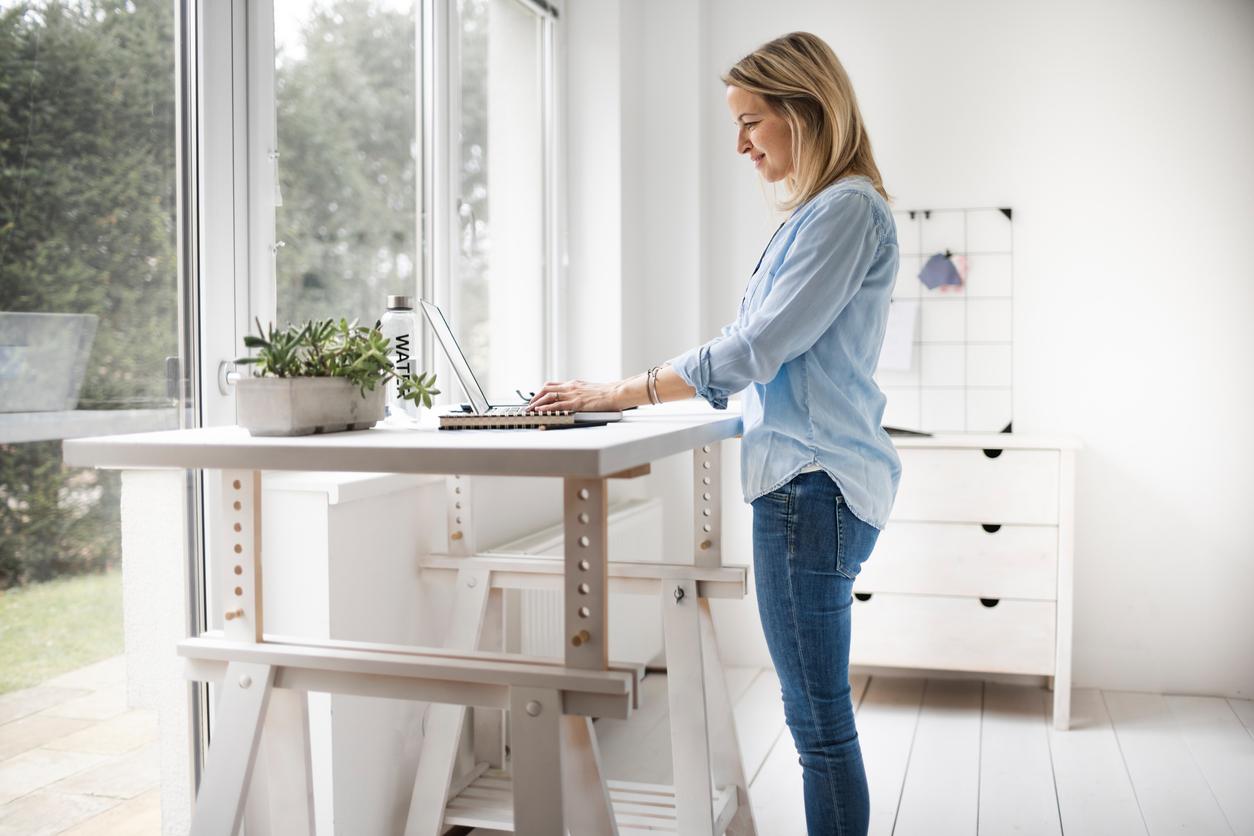Staying locked up at home is not a good idea for the elderly: a sedentary lifestyle greatly increases the risk of disability after the age of 60, according to a recent study.

“Eat while moving”: a precious piece of advice that also applies to the elderly. According to a study by Northwestern University, published on February 19 in the Journal of Physical Activity & Health, sitting too long after 60 years increases the risk of disability. Almost 2,300 people in their sixties took part in this study for 3 years.
13 hours sitting: 9% risk of disability
The sedentary lifestyle of the participants was analyzed. Adults of similar health and physical activity were compared. Each wore accelerometers, which measure the time spent sitting and that spent in moderate or vigorous physical activity. The objectivity of this tool makes it possible to better assess the real activity. Indeed, the older or overweight a person is, the more they overestimate the time spent moving. The results are surprising: each additional hour spent immobile doubles the risk of loss of autonomy. This data is valid whether or not a sporting activity is practiced in parallel. Two 65-year-old women can serve as an example. One sits 12 hours a day, the other 13 hours. The first is exposed to a 6% risk of disability, the second to a 9% risk.
2 million French people with reduced mobility
This study “means that older people need to reduce the time spent sitting, whether it is in front of the television or the computer,” according to Dr Dorothy Dunlop who conducted the study. Disability, in this study, is defined as a limitation in the ability to perform everyday actions: eating, dressing, washing, getting in and out of bed, crossing a room. This reduced mobility concerns 2 million French people according to the latest figures from the Ministry of Health. Among people aged over 60, 970,000 benefit from the Personalized Autonomy Allowance (APA), which is paid to dependent elderly people.
To reduce a sedentary lifestyle, Dr. Dunlop offers several tips. While on a call or in a business meeting, standing helps combat stillness. Small daily tips to encourage walking are also useful: park as far as possible from the store when shopping, favor walking rather than driving for small commissions. In the workplace, new habits can be adopted: going around the office when you get up to drink water or taking the stairs instead of the elevator as soon as possible. So many small gestures that promote physical activity.
.















